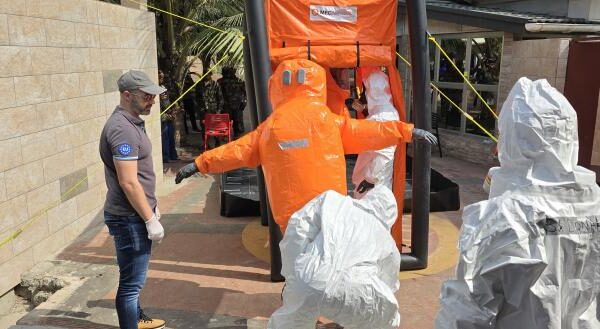Policymakers, law enforcement and civil society actors came together to exchange knowledge and strengthen cooperation in responding to the evolving threats of radicalisation and violent extremism.
On 4–5 June 2025, the European Commission’s Service for Foreign Policy Instruments (FPI), the Delegation of the European Union to Tajikistan, RUSI Europe, the Ministry of Foreign Affairs of Tajikistan and the General Prosecutor’s Office of Tajikistan jointly organised a two-day workshop in Dushanbe on preventing and countering violent extremism (P/CVE).
The training brought together policymakers, law enforcement professionals and civil society actors to exchange knowledge and strengthen cooperation in responding to the evolving threats of radicalisation and violent extremism.
“Violent extremism is not an abstract concept. It is a global threat with deeply local consequences, a phenomenon that undermines peace, fractures societies, and prevents communities from fulfilling their human and developmental potential. The European Union remains committed to working hand-in-hand with Tajikistan to promote a safe, resilient, and inclusive Central Asia,” said Raimundas Karoblis, EU Ambassador and Head of the EU Delegation to Tajikistan.
“We are in this together, not just as partners in security, but as partners in peace.”
Building resilience through knowledge exchange
The event focused on current P/CVE challenges in Tajikistan and explored a range of policy responses. Discussions examined the drivers of violent extremism, the resilience of youth, the role of local authorities, and how to support the disengagement, deradicalisation and reintegration of returning foreign fighters.
Participants explored key themes including:
- Online radicalisation and the role of digital platforms
- Cross-border cooperation to support migrant worker reintegration
- The development of effective counter-narratives
International case studies helped contextualise the discussions. Speakers shared lessons from Indonesia on preventing radicalisation among migrant workers, and from Bosnia and Herzegovina on community-level prevention efforts.
Practical exercises and inter-agency dialogue
The workshop included interactive group exercises, enabling participants to apply prevention strategies to local case studies. Sessions also highlighted the importance of inter-agency and international cooperation, including the EU’s ongoing support to P/CVE policy frameworks and capacity building.
By promoting a whole-of-society approach, the training reinforced the value of local, regional and international partnerships. It forms part of the EU’s broader engagement in Central Asia to support security, stability and resilience.
Share this article:


























